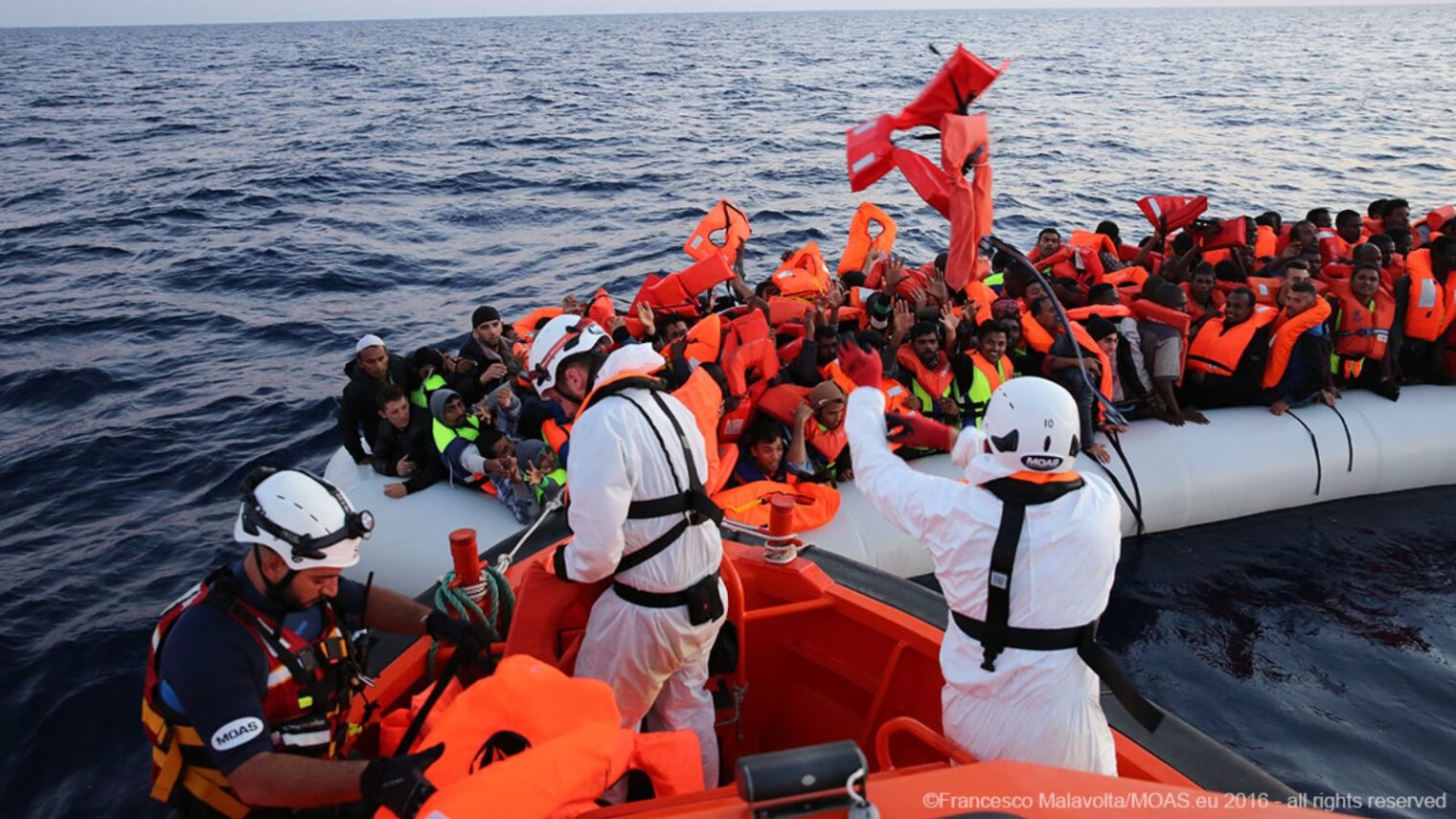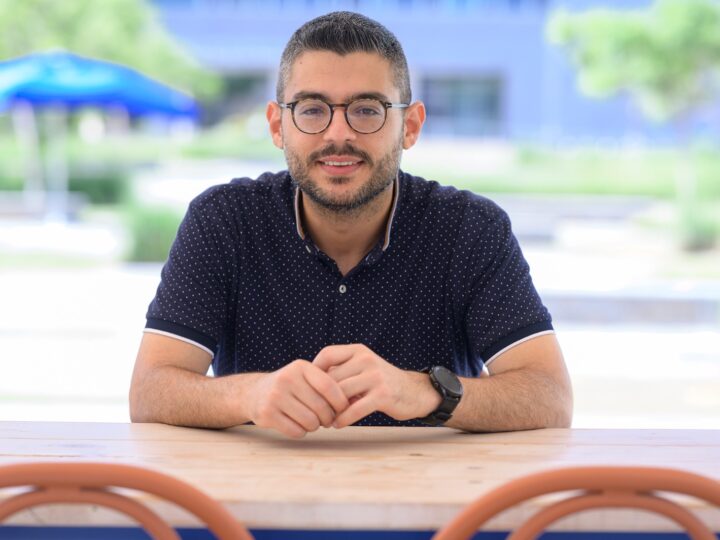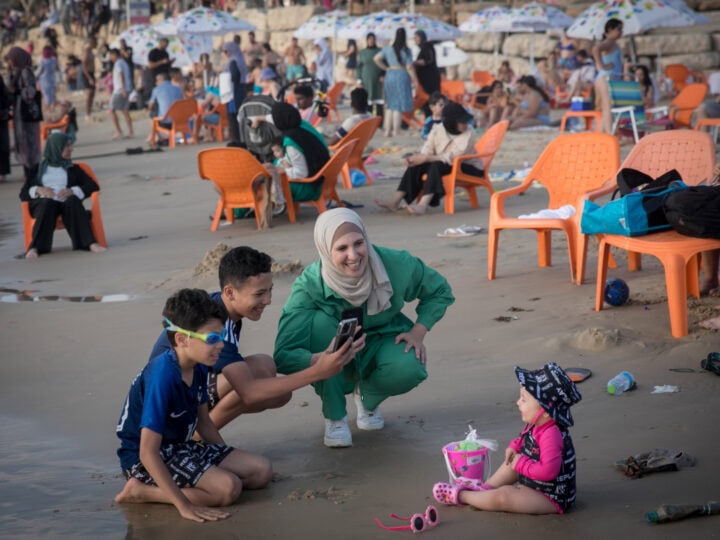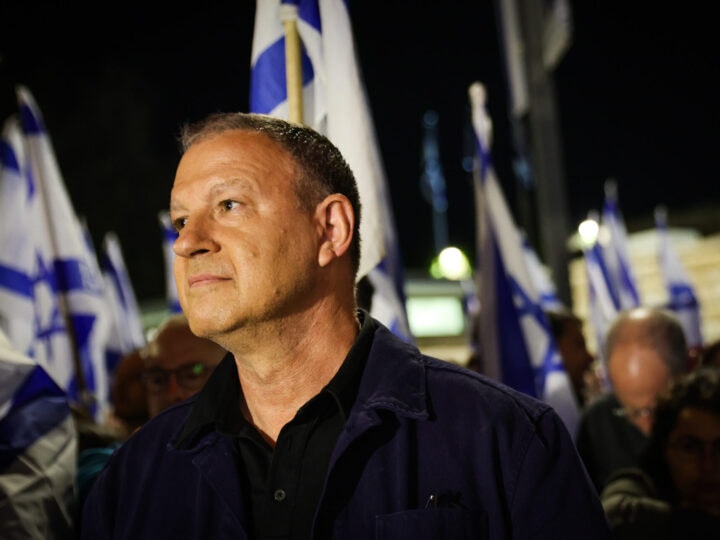Israel “Izzy” Papa decided to make helping others his vocation when he was in high school. The 22-year-old paramedic with Magen David Adom (MDA) started volunteering at Israel’s national emergency medical service and disaster-relief organization as a teen “because it was cool.”
“I saw some people in really awful situations and I realized that someone needs to help. I felt like I need to do it. That’s what I want to do; help people,” he tells ISRAEL21c. “It’s also so satisfying. When you save someone and he gets to live another day, that is a crazy feeling. The best feeling I’ve ever had in my life.”
Papa hit the headlines in Israel recently after becoming the first paramedic, and the first Israeli, to join the Red Cross and the Migrant Offshore Aid Station (MOAS) vessel in the Mediterranean Sea.
“When I told him I was from Israel, he paused for a few minutes and then he said, ‘I love you. You’re my brother.’ That was really exciting to hear.”
His team included international humanitarians, security professionals, medical staff and experienced maritime officers from Malta, UK, US, Slovakia, France, India, Italy, Denmark, Canada, The Netherlands and Sweden.
“We saved close to 4,000 people from the water,” Papa tells ISRAEL21c about his five-week mission on the vessel. MOAS began operating in the central Mediterranean in 2014 to provides humanitarian aid and preliminary medical treatment to refugees – about 25,000 of them so far.
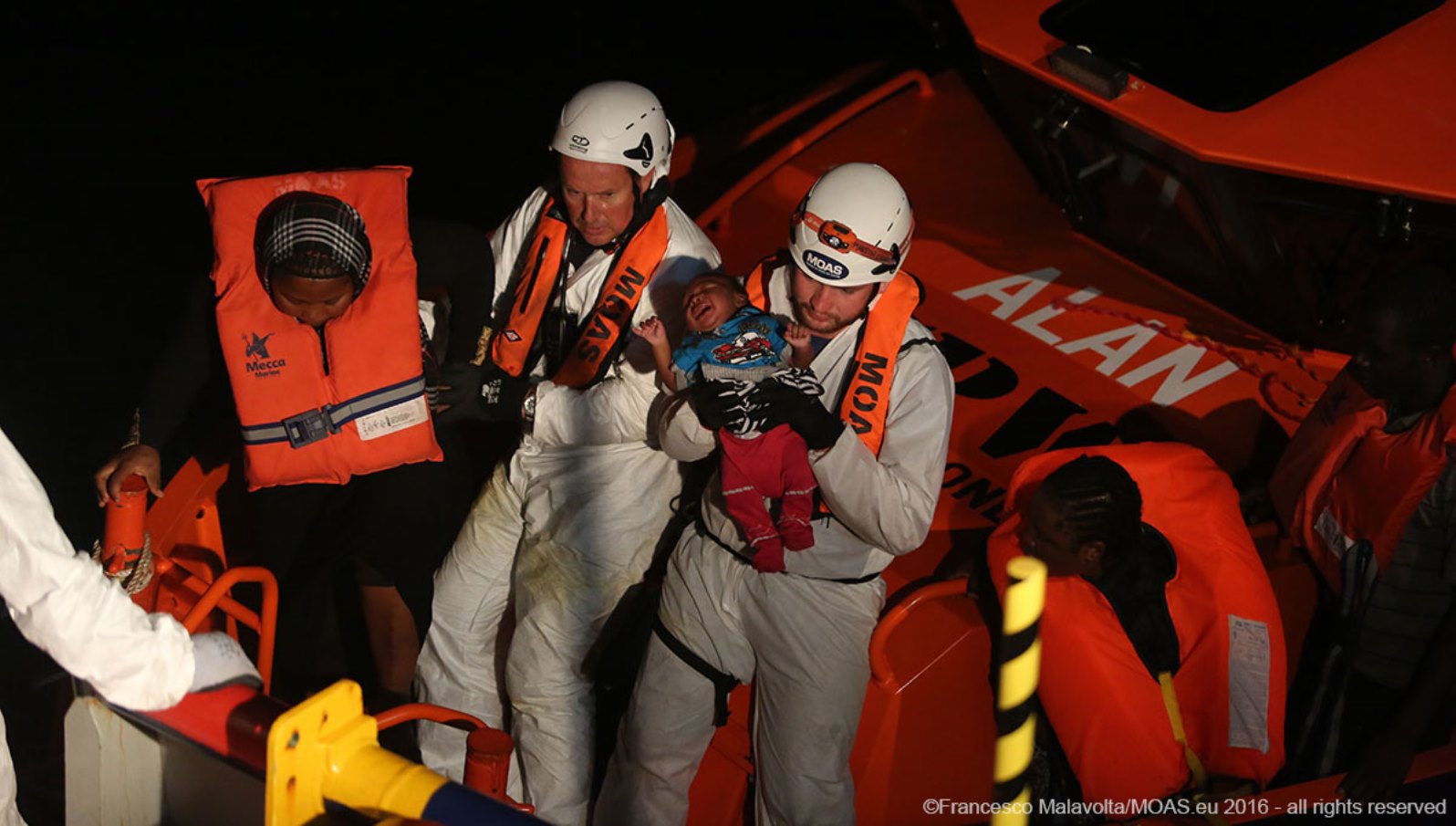
“Being Israel’s national Red Cross society grants MDA with the honor and opportunity to share our resources, knowledge and highly professional personnel with the international community at any time of need. Whether it is a mass-casualty incident or routine missions such as the one our paramedic, Israel Papa, participated in, we constantly make sure to take part and assist wherever and however we can,” said Magen David Adom Director-General Eli Bin.
The busiest crossings in the Mediterranean are the western, central and eastern routes as people flee countries such as Eritrea, Somalia and Syria. Many refugees in southeast Asia who are lured out to sea by promises of a better life end up trapped, kidnapped, abused and forced to buy their freedom from smugglers.
‘We’re all one heart’
Papa says the mission is to provide both physical and emotional support to refugees.
“They have been through so much,” he says. “You know about civil wars in Syria and Africa. But when you actually hear their stories from the people who have experienced them, you get shocked.”
Papa helped save people from Libya, Pakistan, Bangladesh and Syria. His school-taught Arabic helped him communicate.
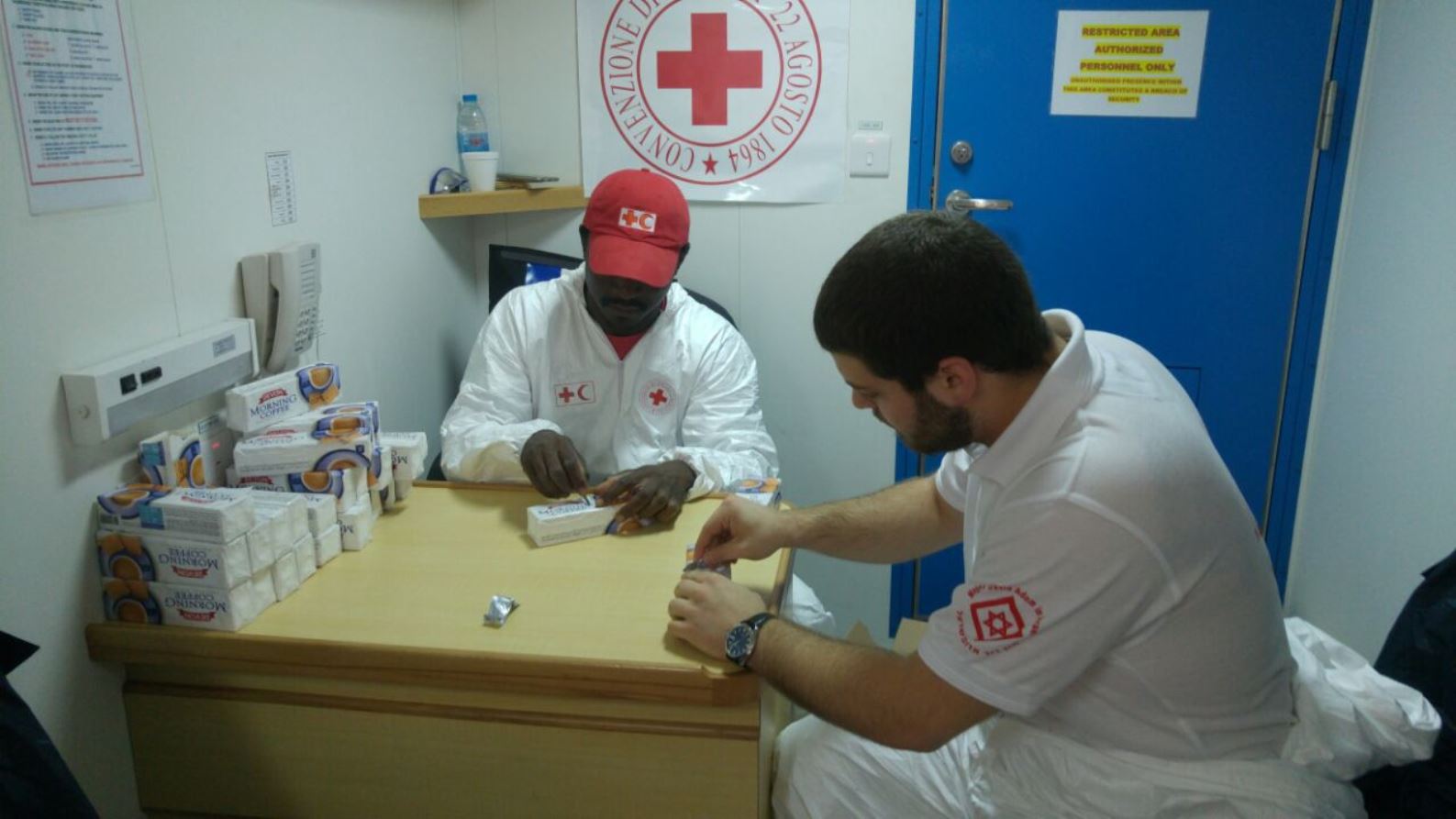
During an interview with ISRAEL21c, Papa pulls out his smartphone to show a photo of a Syrian man he had helped save. The refugee guessed that Papa was from Lebanon or Syria based on his Arabic accent.
“When I told him I was from Israel, he paused for a few minutes and then he said, ‘I love you. You’re my brother.’ That was really exciting to hear. I almost started crying,” Papa says. “My agenda is that we’re all one heart. A person is a person. Whether they’re white, black, Muslim, Christian or Jewish, it doesn’t matter where they come from.”
‘A small disaster in this huge world’
Over the past two years approximately 10,000 refugees have died in the Mediterranean Sea after being crammed inside rubber dinghies and suffering from dehydration and starvation before reaching their destination, says MDA.
Papa, who also served as a paramedic in the Israel Defense Forces, trained at MDA’s paramedics’ school in emergency medicine, operating under time constraints, out on the field and with limited resources.
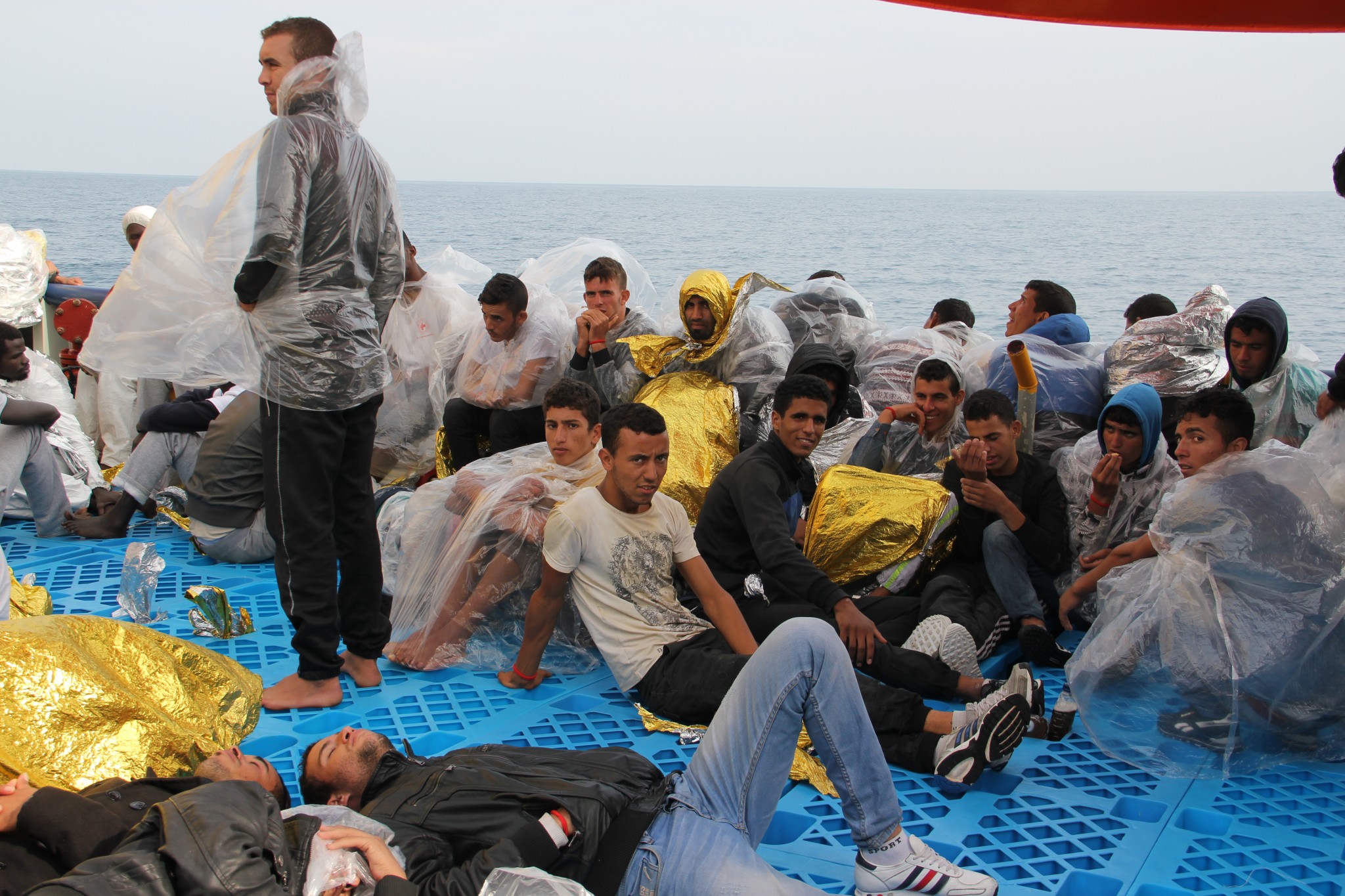
Still, he says, “I was afraid. I didn’t know what to expect. It’s saving lives on a different level. If every day you save five or six people as a [first responder] on an ambulance, out at sea you’re seeing 1,000 people a day. It’s like a mass crisis.”
Papa’s first mission was transferring refugees to safety from one rescue vessel to another. His second assignment was a hands-on rescue mission from an overloaded rubber boat.
“There were 175 people crammed on a dinghy off the coast of Libya. They were in bad shape,” he recalls.
“It feels so surreal. You’re in the Mediterranean waters and it looks like the end of the world curving around. Water is usually so calming. You go to the beach and chill with your friends. And then out in the middle of the Mediterranean, you see the sea as something so different. This little dinghy, it’s a small disaster in this huge world,” he muses. “It’s 2016, and people are going through this stuff; it’s crazy.”
The young man says he felt his role was to give hope.
“If there was no hope, they wouldn’t survive the rubber dinghies,” he says. “I felt I could give hope. I can’t promise them anything. We’re there as a team to make sure no one dies in the sea. No one deserves to be lost in the Mediterranean with their family trying to guess where they are.”
Unleash the Pain
Papa joined MDA shortly after his discharge from the army. He works about 30 shifts a month, some of the time in the National Dispatch Center organizing response teams and helping people over the phone, and sometimes out in the field.
His other passion is music.
Since 2010, this soft-spoken young man has been the vocalist of a metal-core band, Unleash the Pain.
A recent cover of The Chainsmokers’ “Don’t Let Me Down” brought these Israeli metal rockers over 20,000 views on YouTube.
He was born and raised in Ramat Gan, just outside of Tel Aviv, to a general surgeon (father) and computer manager (mother). His older brother was also a medic in the army and is now in the computer arena; his two older sisters are in biotech and advertising law, respectively.
Papa loves snowboarding and names his vacation in Valtournenche as among his favorites. He didn’t do the traditional Israeli post-army trek. In fact, he says, the five weeks on the MOAS was the longest period of time he had been away by himself.
He says he is still processing the powerful experience but it has already changed the way he sees things.
“When I was a kid, all I wanted was to skip school and get out of class, but there was a kid on the vessel who wrote a letter that completely changed my perspective on life. He wrote about how his biggest wish was to have a home again and go to school every day, just like other kids do. All I could think about at that moment was how unfortunate and incredibly unfair it is that some people are born into a tougher life than others.”
Papa hopes to join MOAS again. In the meantime, he’s thinking about writing songs inspired by his time there.
“It was an experience I’ll never regret,” he says. “It gets you thinking how lucky you are and gives you even more motivation to help others have better lives. You want to help people at a different level. “




